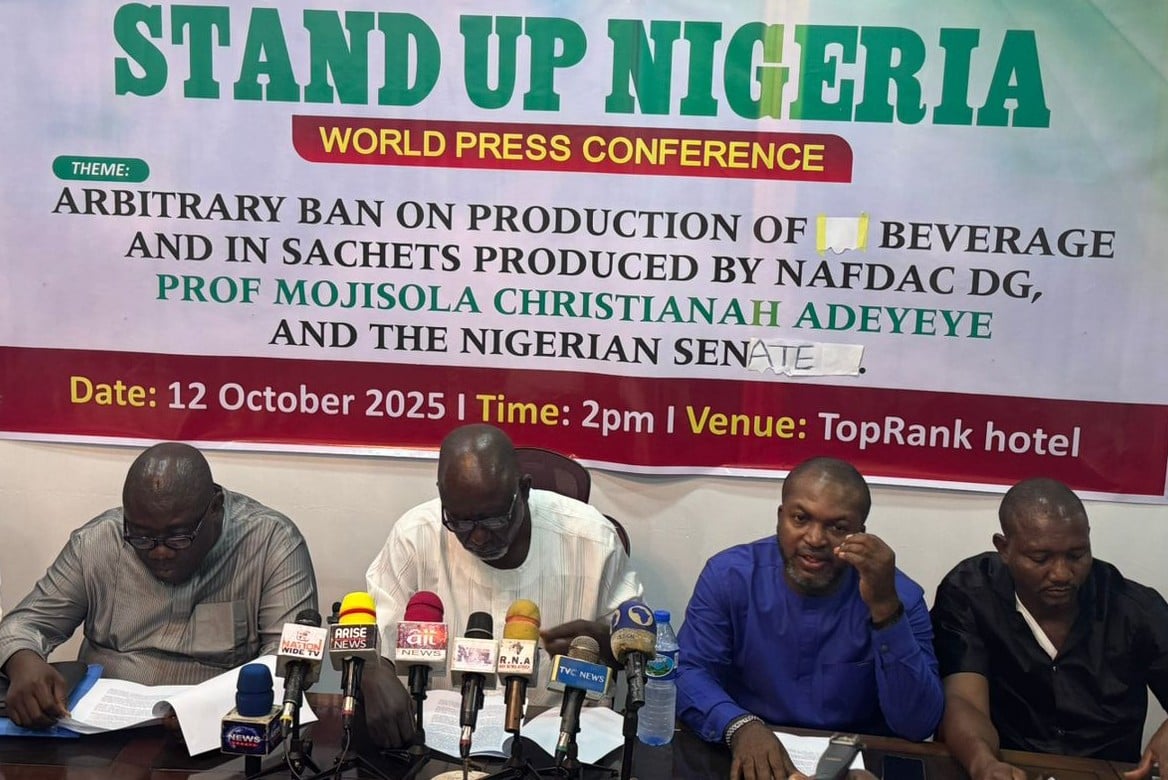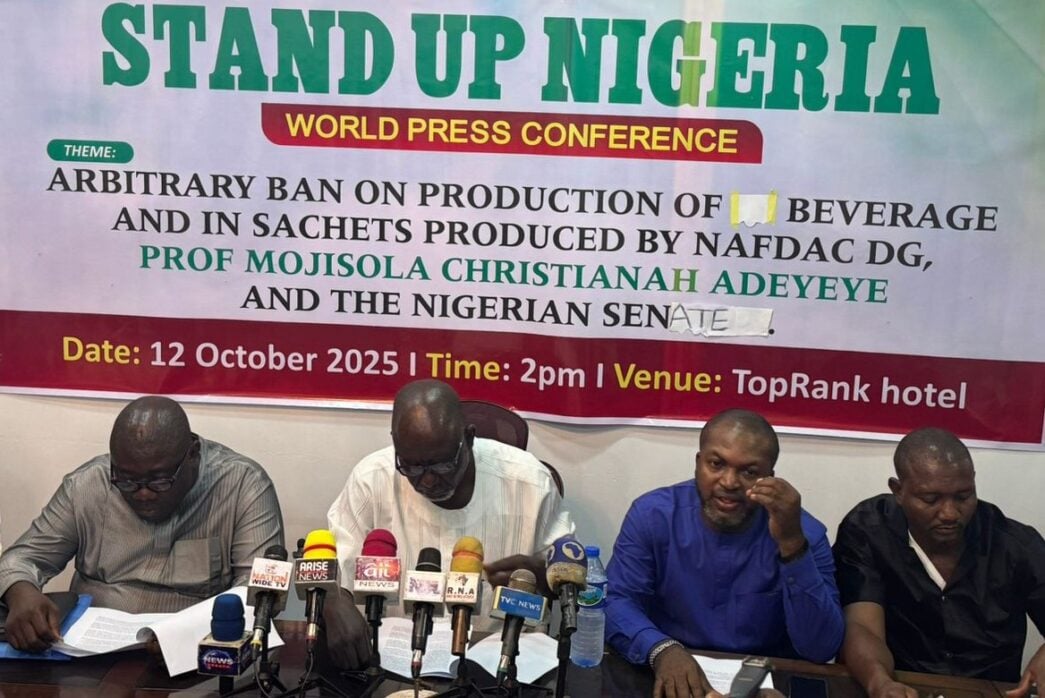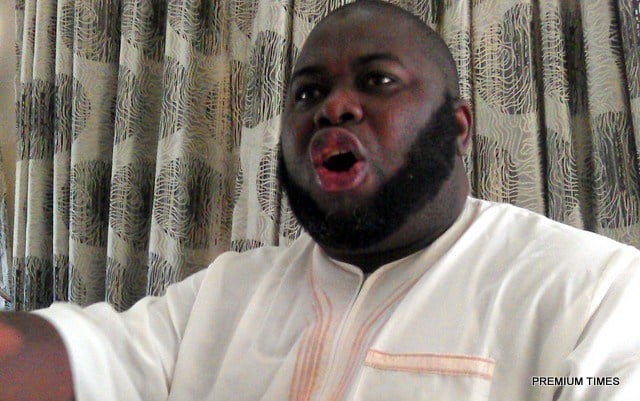Press conference by the civil society organisation Stand Up Nigeria
The civil society organisation Stand Up Nigeria has criticised the planned ban on sachet and small-bottle alcoholic drinks by the National Agency for Food and Drug Administration and Control (NAFDAC), warning it could cost the economy trillions of naira and millions of jobs.
The group spoke at a press conference held on Wednesday at the Toprank Hotel in Garki, Abuja.
Stand Up Nigeria’s condemnation follows a directive from the senate to Mojisola Adeyeye, NAFDAC director-general, to implement the ban in December 2025.
Sunday Attah, the convener of Stand Up Nigeria, expressed “deep concern and disappointment,” describing the directive as an act of “high-handedness and illegality” by Adeyeye and the senate.
Advertisement
The group argued that the ban contradicts President Bola Tinubu’s renewed hope agenda, which they said “prioritises economic empowerment and the protection of local industries”.
They further described the process as “hasty and undemocratic,” alleging that NAFDAC failed to adequately engage critical stakeholders.
This, they claimed, undermines a more inclusive process previously initiated by the federal ministry of health and the house of representatives.
Advertisement
“We read with rude shock, a piece of news item in the print media, broadcast and other media outlets credited to the National Agency for Food and Drug Administration and Control (NAFDAC), purportedly placing a ban on the production, distribution and consumption of alcoholic beverages in sachets and small-volume PET/glass bottles (below 200ml) by December 2025,” the group said.
“This draconic pronouncement by the director general, Prof. Mojisola Christianah Adeyeye, in collaboration with some members of the Nigerian Senate, is in sharp contrast to the renewed hope agenda of His Excellency, Asiwaju Bola Ahmed Tinubu GCFR.
“Who rose to power with a people-oriented development blueprint, immediately embarked on total diversification of the nation’s economy to make resources available for executing capital projects, as seen in the full deregulation of the Nigerian oil sector downstream.”
The group alleged that the senate resolutions were passed at the behest of NAFDAC without taking cognisance of the ongoing consideration of the same matter by house of representatives.
Advertisement
“An arm of government that is ordinarily supposed to represent the interests of all Nigerians, directing NAFDAC to enforce the illegal ban on December 31, 2025, without hearing from the second party. We strongly suspect that the alleged Senate resolutions were passed at the behest of NAFDAC, at its sitting on Thursday, November 6, 2025, without taking cognisance of the ongoing consideration of the same matter by members of the House of Representatives,” it added.
“Meanwhile, a directive for one-year extension by the Ministry of Health, a supervising organ of government that is constitutionally saddled with the responsibility of overseeing NAFDAC leading to the consideration and validation of a draft on National Alcohol Policy by stakeholders is still being deliberated upon, which should have been considered before any major official pronouncement by an arm of the government.”
Stand Up Nigeria also warned that the implications of the ban are too severe to ignore, stating it would be “economically counterproductive” and could “trigger an economic dislocation of unimaginable proportions”.
“These include the loss of over ₦1.9 trillion in investments by indigenous companies, the mass retrenchment of more than 500,000 direct employees, and an estimated 5 million indirect jobs tied to contractual engagements,” the group added.
Advertisement







